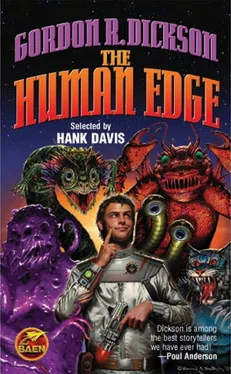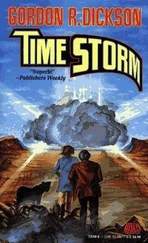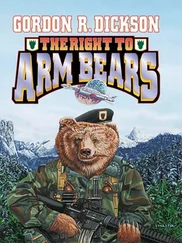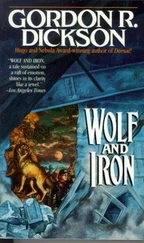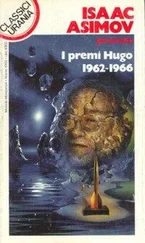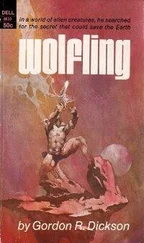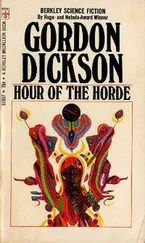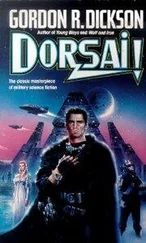Cal smiled. “I’ll have to go say hello to him when I get out of here.”
“I don’t think they’ll let you do that,” said Joe. “They’ve got him guarded ten deep someplace. Remember, his people still represent a danger to the human race greater than anything we’ve ever run into.”
“Danger?” said Cal. “They’re no danger to us.”
It was Joe who stared at this. “They’ve got a definite weakness,” said Cal. “I figured they must have. They seemed too good to be true from the start. It was only in trying to beat him out to the top of the mountain and get the Messenger off that I figured out what it had to be, though.”
“What weakness? People’ll want to hear about this!” said Joe.
“Why, just what you might expect,” said Cal. “You don’t get something without giving something away. What his race had gotten was the power to adapt to any situation. Their weakness is that same power to adapt.”
“What’re you talking about?”
“I’m talking about my alien friend on the mountain,” said Cal, a little sadly. “How do you suppose I got the Messenger off? He and I both knew we were headed for a showdown when we reached the top of the mountain. And he had the natural advantage of being able to adapt. I was no match for him physically. I had to find some advantage to outweigh that advantage of his. I found an instinctive one.”
“Instinctive…” said Joe, looking at the big, bandaged man under the covers and wondering whether he ought not to ring for the nurse.
“Of course, instinctive,” said Cal thoughtfully, staring at the bed sheet. “His instincts and mine were diametrically opposed. He adapted to fit the situation. I belonged to a people who adapted situations to fit them . I couldn’t fight a tiger with my bare hands, but I could fight something half-tiger, half something else.”
“I think I’ll just ring for the nurse,” said Joe, leaning forward to the button on the bedside table.
“Leave that alone,” said Cal calmly. “It’s simple enough. What I had to do was force him into a situation where he would be between adaptations. Remember, he was as exhausted as I was, in his own way; and not prepared to quickly understand the unexpected.”
“What unexpected?” Joe gaped at him. “You talk as if you thought you were in control of the situation all the way.”
“Most of the way,” said Cal. “I knew we were due to have a showdown. I was afraid we’d have it at the foot of the tower—but he was waiting until we were solidly at the top. So I made sure to get up to that flat spot in the tower first, and cut the rope. He had to come up the tower by himself.”
“Which he was very able to do.”
“Certainly—in one form. He was in one form coming up,” said Cal. “He changed to his fighting form as he came over the edge—and those changes took energy. Physical and nervous, if not emotional energy, when he was pretty exhausted already. Then I swung at him like Tarzan as he was balanced, coming over the edge of the depression in the rock.”
“And had the luck to knock him off,” said Joe. “Don’t tell me with someone as powerful as that it was anything but luck. I was there when Mike and Sam got killed at the Harrier, remember.”
* * *
“Not luck at all,” said Cal, quietly. “A foregone conclusion. As I say, I’d figured out the balance sheet for the power of adaptation. It had to be instinctive. That meant that if he was threatened, his adaptation to meet the threat would take place whether consciously he wanted it to or not. He was barely into tiger-shape, barely over the edge of the cliff, when I hit him and threatened to knock him off into thin air. He couldn’t help himself. He adapted.”
“Adapted!” said Joe, staring.
“Tried to adapt—to a form that would enable him to cling to his perch. That took the strength out of his tiger-fighting form, and I was able to get us both off the cliff together instead of being torn apart the minute I hit him. The minute we started to fall, he instinctively spread out and stopped fighting me altogether.”
Joe sat back in his chair. After a moment, he swore.
“And you’re just now telling me this?” he said.
Cal smiled a little wryly.
“I’m surprised you’re surprised,” he said. “I’d thought people back here would have figured all this out by now. This character and his people can’t ever pose any real threat to us. For all their strength and slipperiness, their reaction to life is passive. They adapt to it. Ours is active—we adapt it to us. On the instinctive level, we can always choose the battlefield and the weapons, and win every time in a contest.”
He stopped speaking and gazed at Joe, who shook his head slowly.
“Cal,” said Joe at last, “you don’t think like the rest of us.”
Cal frowned. A cloud passing beyond the window dimmed the light that had shone upon him.
“I’m afraid you’re right,” he said quietly. “For just a while, I had hopes it wasn’t so.”
Time to send the audience out on a light note. Or maybe not so light, after all. Just maybe, there are times when humans might wish that the aliens are the ones with the edge.
“Sure, Mike. Gee!” said the young Tolfian excitedly, and went dashing off from the spaceship in the direction of the temporary camp his local people had set up at a distance of some three hundred yards across the grassy turf of the little valley. Watching him go, Mike Wellsbauer had to admit that in motion he made a pretty sight, scooting along on his hind legs, his sleek black-haired otterlike body leaning into the wind of his passage, and his wide, rather paddle-shaped tail extended behind him to balance the weight of his erected body. All the same…
“I don’t like it,” Mike murmured. “I don’t like it one bit.”
“First signs of insanity,” said a female and very human voice behind him. He turned about.
“All right, Penny,” he said. “You can laugh. But this could turn out to be the most unfunny thing that ever happened to the human race. Where is the rest of the crew?”
Peony Matsu sobered, the small gamin grin fading from her pert face, as she gazed up at him.
“Red and Tommy are still trying to make communication contact with home base,” she said. “Alvin’s out checking the flora—he can’t be far.” She stared at him curiously. “What’s up now?”
“I want to know what they’re building.”
“Something for us, I’ll bet,”
“That’s what I’m afraid of. I’ve just sent for the local squire.” Mike peered at the alien camp. Workers were still zipping around it in that typical Tolfian fashion that seemed to dictate that nobody went anywhere except at a run. “This time he’s going to give me a straight answer.”
“I thought,” said Penny, “he had.”
“Answers,” said Mike, shortly. “Not necessarily straight ones.” He heaved a sudden sigh, half of exhaustion, half of exasperation. “That young squirt was talking to me right now in English. In English! What can you do?”
Penny bubbled with laughter in spite of herself.
“All right, now hold it!” snapped Mike, glaring at her. “I tell you that whatever this situation is, it’s serious. And letting ourselves be conned into making a picnic out of it may be just what they want.”
“All right,” said Penny, patting him on the arm. “I’m serious. But I don’t see that their learning English is any worse than the other parts of it—”
“It’s the whole picture,” growled Mike, not waiting for her to finish. He stumped about to stand half-turned away from her, facing the Tolfian camp, and she gazed at his short, blocky, red-haired figure with tolerance and a scarce-hidden affection. “The first intelligent race we ever met. They’ve got science we can’t hope to touch for nobody knows how long, they belong to some Interstellar Confederation or other with races as advanced as themselves—and they fall all over themselves learning English and doing every little thing we ask for. ‘ Sure, Mike! ’—that’s what he said to me just now… ‘ Sure, Mike! ’ I tell you, Penny—”
Читать дальше
